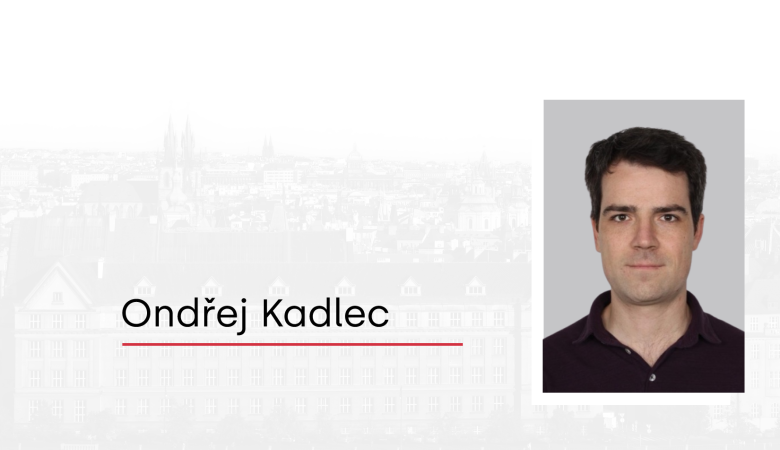Prague Constitutional Seminar Series: Ondřej Kadlec

Prague Constitutional Seminar Series: Ondřej Kadlec
Katedra ústavního práva zve na další seminář Prague Constitutional Seminar Series:
Na semináři vystoupí Ondřej Kadlec (Masarykova univerzita). Představí svůj paper Managing Judicial Legitimacy: The Role of Grand Chambers in National and International Courts.
Máte-li zájem o zaslání prezentovaného textu, vyplňte svůj e-mail zde.
K pravidelnému odběru e-mailů o seminární sérii se můžete přihlásit zde.
Seminář se uskuteční ve čtvrtek dne 15. května od 16:30 v místnosti č. 412.
Akce se uskuteční v českém jazyce.
Všichni jsou vřele vítáni!
Bio
Byť původem z Prahy, Ondřej Kadlec působí jako výzkumník na Ústavu pro otázky soudnictví (JUSTIN) při Právnické fakultě Masarykovy univerzity v Brně. Je absolventem právnických fakult Univerzity v Oxfordu (MPhil 2019, DPhil 2025), Nova Southeastern University (J.D. 2014) a Univerzity Karlovy (Mgr. 2013, JUDr. 2020). Ve svém výzkumu se zaměřuje především na soudy, právní argumentaci a ústavní teorii. Je autorem monografie Role velkých senátů v rozhodování vrcholných soudů České republiky (Wolters Kluwer 2019), ke které vyšlo zvláštní číslo časopisu Jurisprudence (2021). V poslední době se věnoval mimo jiné fenoménu českých „supersoudců“ či vlivu technologie na práci s judikaturou. V minulosti působil jako asistent soudkyně Nejvyššího správního soudu a vyučoval teorii práva (v Praze), evropské právo (v Oxfordu) a ústavní právo a státovědu (v Brně). V roce 2019 složil justiční zkoušky. V současnosti pracuje na anglicky psané knize o roli velkých senátů Soudního dvora EU a Evropského soudu pro lidská práva.
Anotace
The article I will present at the seminar examines the widespread practice of using extended judicial formations to decide selected types of cases in higher courts, a practice present in many jurisdictions—whether appellate, apex, or supranational. While these formations, often considered the ‘most important’, are frequently debated within individual countries, a conceptual and comparative analysis providing a firmer theoretical foundation for these discussions is currently lacking. Departing from existing scholarship, which often assumes a universal purpose for these bodies, I will argue that jurisdictions tend to adopt one of two ideal models of extended formations: the representative model or the jurisprudential model. These models reflect divergent sources of legitimacy for the enlarged formations—either rooted in the broader participation of judges in the court’s decision-making process (input or procedural legitimacy), or in the doctrinal quality of the decisions that the grand chamber produces and the consequences they bring about (output or performance-based legitimacy). These distinctions help to explain differences in how extended formations are composed, the types of cases they hear, the procedures they follow, and how their decisions are written and subsequently used within the court. Ultimately, I will argue that the choice between the two models reflects broader assumptions within different judicial systems about the nature of law and judging.








